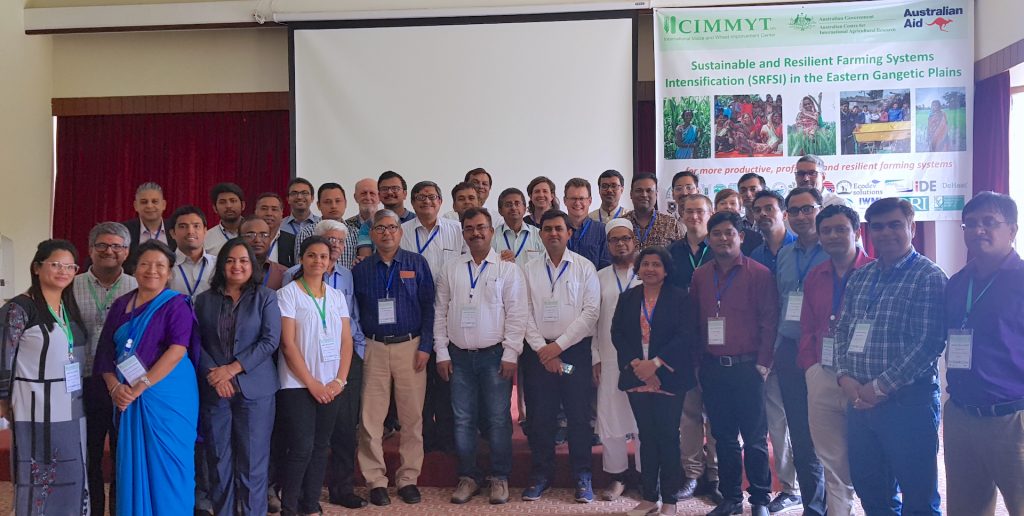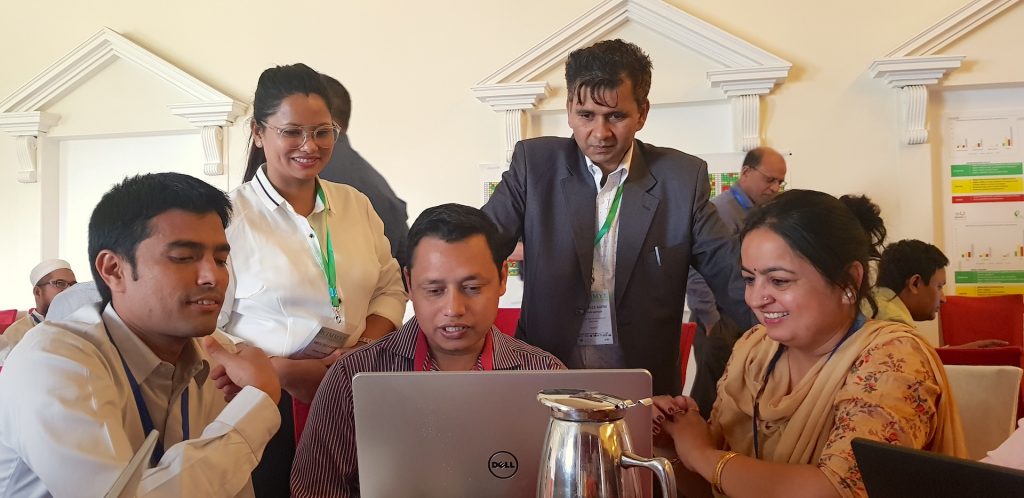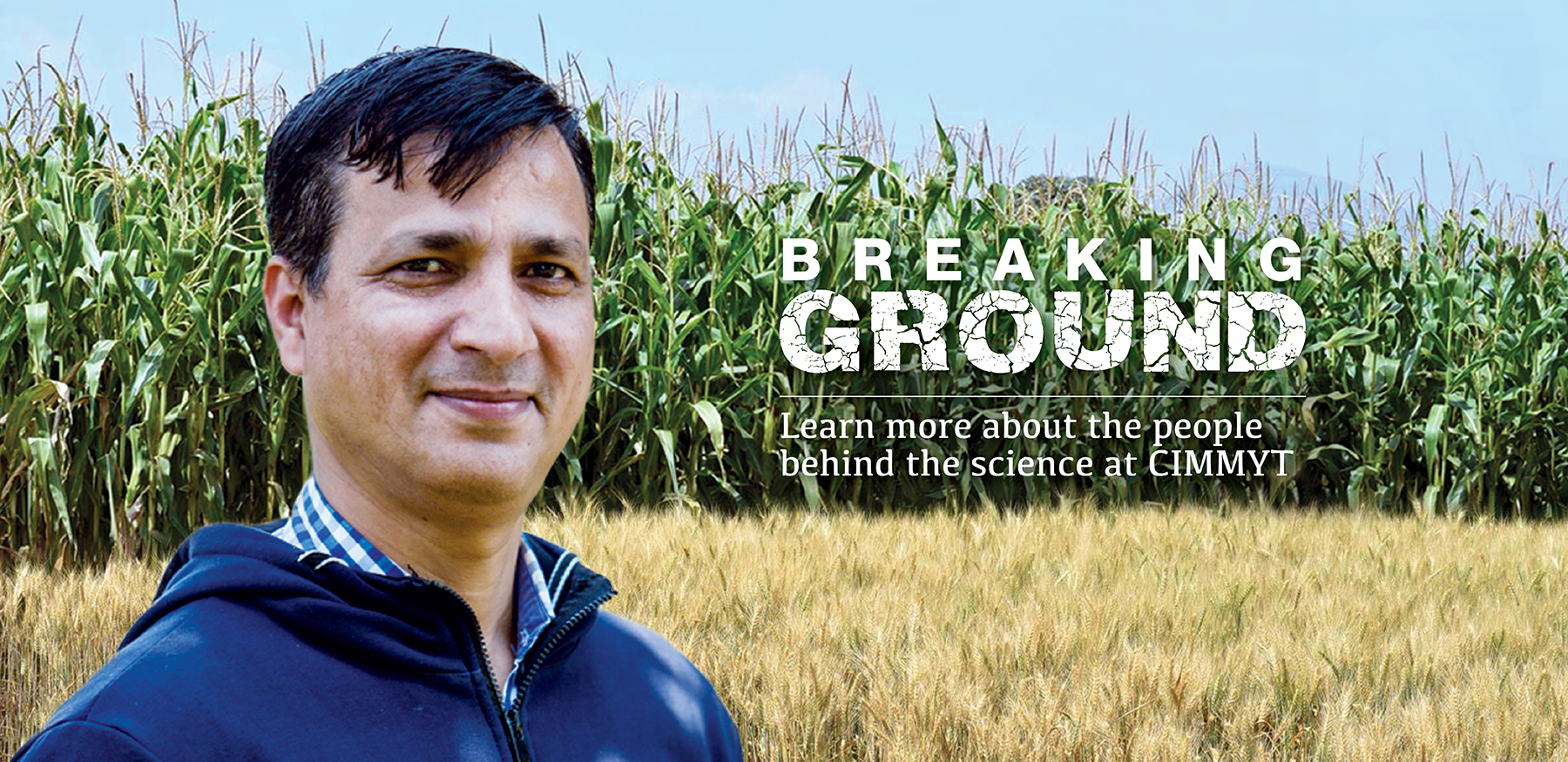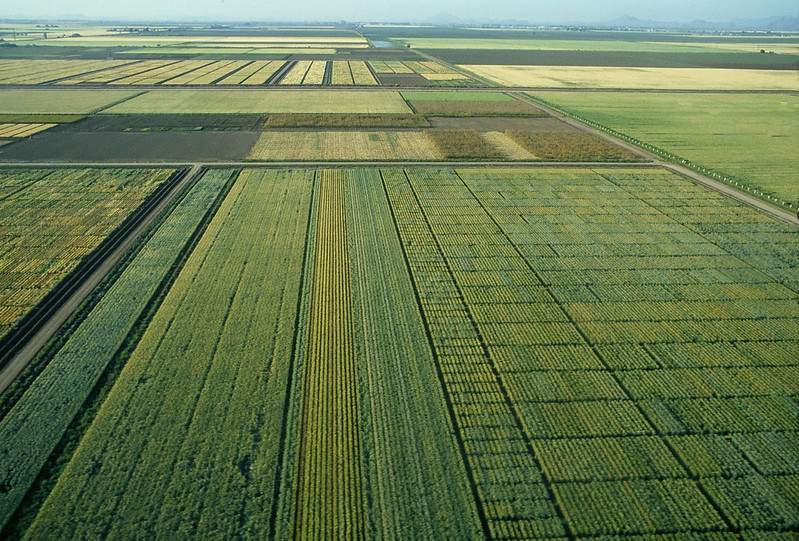
Over 50 stakeholders from the Sustainable and Resilient Farming Systems Intensification in the Eastern Gangetic Plains (SRFSI) project engaged in three days of reflection and planning in Kathmandu, Nepal, in early May 2019. Partners from four countries focused on identifying key learnings across a range of topics including value chains, business models, agricultural extension, capacity building, innovation platforms and policy convergence. After almost five years of project activities, there was naturally plenty of vibrant discussion.
The cross-cutting themes of gender and climate change were considered within each topic, to capture project outputs beyond participation and farm level impact. Discussions around gender confirmed the benefits of targeted women’s participation and ensuring that women’s availability was accommodated. Working within the SRFSI project, researchers have identified new business opportunities for women, with benefits for individuals and community groups. In terms of business models, it was highlighted that promoting gender-inclusive strategies for all partners, including the private sector, is necessary. Ensuring a wide range of partnership institutions, such as NGOs with women-centric programs, is also beneficial for reaching more women.

Conservation agriculture-based sustainable intensification techniques have been confirmed as contributing to climate-resilient farming systems, both in terms of mitigation and adaptation. Importantly, the project has demonstrated that these systems can be profitable, climate smart business models in the Eastern Gangetic Plains. They were also seen as fitting well with government plans and policies to address climate change, which was demonstrated by convergence with country and NGO programs that are focused on climate change adaptation.
In keeping with the recently approved no-cost extension of the SRFSI project until June 2020, the final sessions identified remaining research questions in each location and scaling component, and project partners nominated small research activities to fill these gaps. The final year of SRFSI is an excellent opportunity to capture valuable lessons and synthesise project outputs for maximum impact.
The Sustainable and Resilient Farming Systems Intensification Project is a collaboration between the International Maize and Wheat Improvement Center (CIMMYT) and the project funder, the Australian Centre for International Agricultural Research (ACIAR).

 Gender equality, youth and social inclusion
Gender equality, youth and social inclusion 


